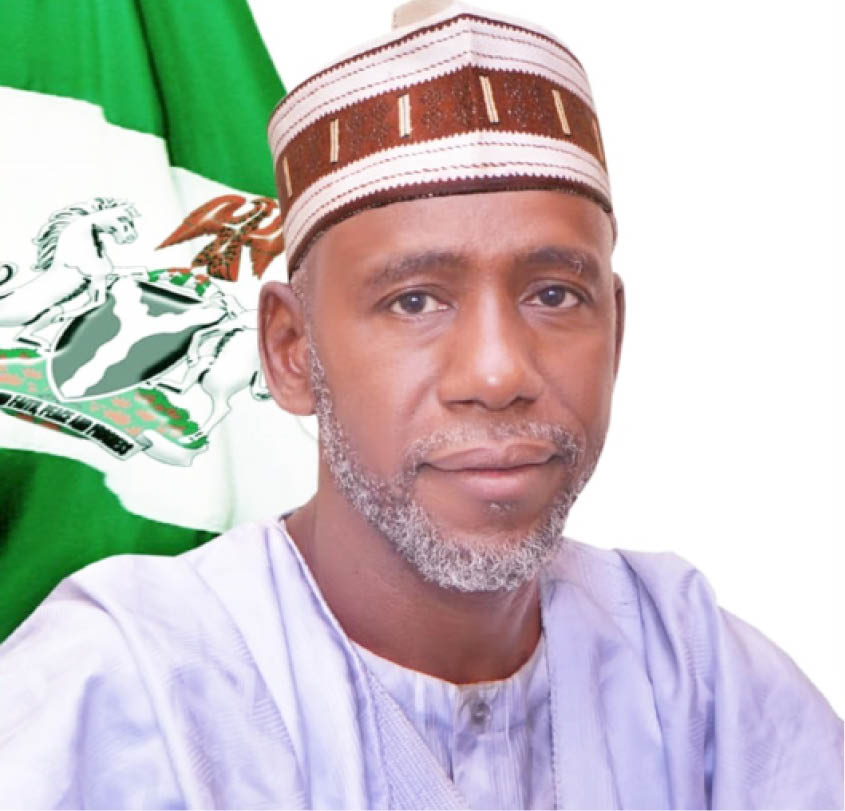Dr Abubakar Surumbai Sheikh Dahiru, Chairman of Bauchi State Universal Basic Education Board (SUBEB), in this interview speaks on the efforts to mop up out of school kids
You were appointed SUBEB chairman few months ago, what did you meet on ground and what are the specific things you have done so far to ensure that a solid foundation is laid to transform the basic education sub- sector in the next four years?
It is too early to start appraising the efficacy of whatever programmes or policies government implements. It is also imperative that such a period can be used to lay a solid and vibrant foundation for the developmental programmes for the basic education subsector in the state.
We discovered that most of the roofs of primary school buildings were blown up by windstorm and were not repaired. Governor Bala Mohamed has awarded contracts for the construction and renovation of blocks of classrooms across the 20 local government areas of the state. He awarded about 1,000 various contracts such as renovation, construction of classroom blocks, borehole, toilets and many others under Universal Basic Education Commission (UBEC)/SUBEB projects. The contract was awarded at the cost of N5.5 billion. These are projects for primary schools and junior secondary schools. Some of these projects are going without hitches while there are many that have some issues. We came out with a reward system for contractors who do good jobs and we threatened to blacklist any contractor who did not do a good job. At the same time, we encouraged the contractors to carry out little projects for the schools outside their agreement. Some of them were encouraged to build toilets, others were encouraged to increase the height of the wall that surrounded the schools and many actually heeded to our clarion call.
We carryout surprise school inspections to establish methods used by teachers in classrooms. This is because we want to achieve quality education and provide enough learning and instructional materials. We want to make sure that no pupil sits on the floor or under the trees to receive lessons. We want to change the narrative by providing adequate classrooms and all that is needed to provide quality education in the state.
Is it true that the new government reviewed contracts awarded by the previous governments?
Don’t forget that the UBEC/SUBEB projects are quite different from the normal state government-owned contracts or projects. UBEC gives uniform guidelines for all SUBEB projects all over the country. Also, it doesn’t just release money but has what they call Action Plan which must have been approved and followed to the letter. To ensure compliance, UBEC does what they call project monitoring and financial monitoring. So, they want to know and see that the projects they gave you the approval to do are the ones you are doing. They also want to know that the money that they gave you is being spent on those particular projects. They want to know the extent of the projects done and whether the money paid is commensurate with the job that was done and this is happening all over the country. Bauchi State is not an exception.
However, that does not mean that when a contractor deviates from the principle and agreement, such contractor’s project cannot be reviewed or terminated. But we do not use any political consideration to determine any of such.
Aside projects and schools, we have also tried to improve standard and quality assurance aspect. We went to some schools and found that most teachers were not in their classes. We met with their principals and warned them.
Also, we discovered that some of the missing links that have been responsible for the low standard of education in the state are monitoring, supervision and inspection. In those days when we were in school, when we hear that an inspector was coming around, teachers ran helter-skelter to ensure that they comported themselves, but such inspection is no longer there. But now, we have realised that some of these teachers are now on their toes, because they know that we can come after them anytime. And when those inspectors are monitoring, we, at the board level here will also monitor them. By this, they will do the needful to improve the quality of education in the state.
How are you tackling the issue of 1.3 million out-of-school children on the streets?
Under this, we have multi-dimensional approach. Our governor has explained that the state government will build big classrooms to accommodate these children. We also have a serious programme known as Better Education Service Delivery for All (BESDA). It is a programme of the World Bank in collaboration with the federal and state governments to tackle the menace of out-of-school children in Bauchi State. We have completed all arrangements to move 58,000 out-of-school children to classrooms. Out of the number, 33,000 are boys while 25,000 are girls. We will soon open over 500 learning centres across the 10 local government areas in the state for them in our effort to address the challenge. Under this, we are taking a step further to introduce the learning centres in markets so that once these children bring their wares from the village to the markets, they will go there to study for just one or two hours and go back. Before the end of the four-year programme, these boys and girls will be literate. We are going to train them for nine months and then attach them to schools. In some remote areas, we have many children that are roaming about, hawking items or doing nothing. We were able to establish learning centres in such places. We have trained 70 master- trainers, 246 school support officers, and 3,382 teachers and head teachers to run the centres. We have trained over 1,500 teachers capable of handling girl child centres and Tsangaya schools.
The second aspect of this programme is to improve literacy, and that is only possible by building capacity of the teachers. We have also distributed books to schools, including those in remote areas, free-of-charge. We don’t take teachers out of their communities. We also ensure that all the teachers live in the same community.
BESDA has surpassed its target of 33,000 Almajiri and achieved over 58,000 enrolments, and we will not relent until all out-of-school children are mopped up and brought back to classrooms. And the beauty of the programme is the motivation in it. Under this, we would introduce free feeding to motivate the pupils and there is a lot of support and packages for the centres, all geared towards creating enabling environment for the Tsangaya school learners, girl-child, and providing quality education for them, through provision of teaching and learning materials, and we have the Governor, Bala Mohammed.
Do you think traditional Tsangaya school teachers will accept the programme?
Yes, they are cooperating with us because before we started, we embarked on a high powered sensitisation programme on the project. We visited the six emirates where we solicited the support of the royal fathers. We visited a renowned Islamic scholar, Sheikh Dahiru Bauchi; we also visited the Centre for the Improvement of Traditional Qur’anic Schools and many similar associations, and we have organised a workshop for the Tsangaya school owners.

 Join Daily Trust WhatsApp Community For Quick Access To News and Happenings Around You.
Join Daily Trust WhatsApp Community For Quick Access To News and Happenings Around You.


